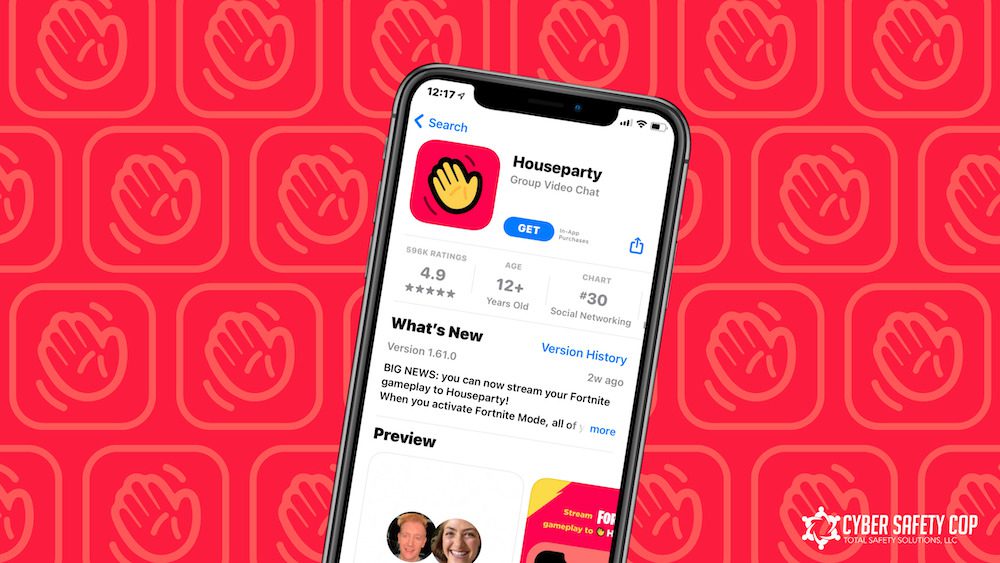Houseparty is a face-to-face social network where you can connect with people you know and potentially strangers. What parents need to know before they download this app for their child.
 Houseparty (Rated 12+, Group Video Chat)
Houseparty (Rated 12+, Group Video Chat)
App store description: Houseparty is the face-to-face social network where you can connect with the people you care about most. The app makes connecting face to face effortless, alerting you when your friends are “in the house” and ready to chat so you can
jump right into the conversation. The same goes for you opening the app! Your friends will know you’re in the app and ready to chat, so they can join you (…because rejected calls are so last year). Houseparty is truly the next best thing to hanging out in person. See your friends more often on Houseparty.
Problems
People, maybe people your child does not know, can join your child’s group video chat without permission if the chat group is not locked. When a user is in a Houseparty group chat, a connection from one of the in-chat members can choose to join the group, even though they are not connected or known to the other users. Houseparty does give you the option to lock your conversations. When a conversation is locked, everyone is notified that the user has locked the
conversation, and if someone should try to join, they are blocked from doing that. If you allow your child to use Houseparty, we encourage you to get them into the habit of locking the conversation. If someone within the conversation unlocks the chat, everyone is notified that the conversation has been unlocked.
One major issue with live streaming apps is unless the parent is sitting on their kid’s shoulder, they will not know what is happening or being said on the video chat, making accountability for children using this app very difficult.
Parental Controls
None.
Recommendation
Safe for children 13 years or older (with parental supervision).
Topics to discuss with your child before any live video chat apps:
- Video chats should be done in a common area of the house where the parent can freely watch and listen to what is going on.
- All conversations on Houseparty must be locked. Your child should have a standing rule that if the conversation is ever unlocked, they must leave the chat. They are never allowed to chat with someone they don’t know.
- Talk to your child about the lack of privacy on social media, and specifically on this app. A Houseparty user has no control of what another user does, including taking screenshots of the group chat and/or video recording the conversation. Saying something inappropriate, even in jest, can have horrible consequences.
- If one of the participants in the chat did something inappropriate, your child must leave the chat. Explain to them, although they are not the one doing the inappropriate thing, by remaining in the chat they are silently condoning the behavior.
- Make sure that the other children’s parents know that their child is having a video chat with your child.
This is an abridged excerpt from Clayton Cranford’s updated book, Parenting in the Digital World (Third Edition). To learn more about how to talk to your child about sexting, predators, bullying, pornography, and how to make all of your child’s devices safe with the latest parental control settings, get Clayton’s eBook or the paperback at Amazon.
*There are affiliate links throughout this post because we’ve tested and trust a small list of parental control solutions. Our work saves you time! If you decide that you agree with us, then we may earn a small commission, which does nothing to your price. Thank you!





